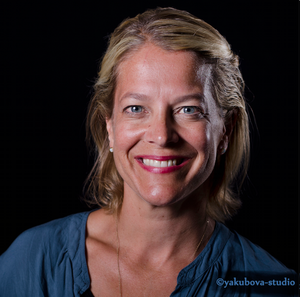Bethany Wiggin
Founding Faculty Director, Penn Program in Environmental Humanities
Professor of German Languages and Literature
Ph.D. University of Minnesota
Bethany Wiggin joined the faculty at Penn in 2003 and is an Associate Professor of German and affiliated faculty in the Program in Comparative Literature and the Department of English. She is the Founding Director of the Penn Program in Environmental Humanities.
Her books and essays explore histories of migration, language, multilingualism, and cultural translation since the Columbian exchange across the Atlantic world, and her work has appeared in journals ranging from the PMLA to the journal Nature. At present, she is writing Utopia Found and Lost in Penn’s Woods, an exploration of the multiethnic worlds European settler colonists attempted to build in the Delaware Valley, sometimes in understanding with their Lenape neighbors, and the ways in which the ecological legacy of this historical chapter continue to reverberate into our present. The ambitious volume, Timescales: Ecological Temporalities across Disciplines, co-edited with PPEH alumnae is now in production (University of Minnesota Press, 2020). She is also editor of three additional essay collections: Babel of the Atlantic (Penn State University Press, 2019), The Rise and Fall--or Fall and Rise?--of Monolingualism (a co-edited special issue of the German Studies Review), and the co-edited Un/Translatables: New Maps for Germanic Cultures (Northwestern University Press, 2016). Wiggin's first book, Novel Translations: The European Novel and the German Book (Cornell University Press, 2010), explored the emergence of commodity culture, fashion, and reading as a form of entertainment.
She regularly teaches seminars in environmental humanities. Courses include experimental cross-disciplinary seminars for undergraduates, such as Liquid HIstories and Floating Archives (Anth 154, Coml 152, Engl 052, Envs 152, Grmn 152, Hist 152) and graduate seminars, including Environmental Humanities: Theory, Method, Practice and Public Environmental Humanities (for PPEH Fellows only). For German majors, she advises senior theses and loves to teach the core course, Translits.
She is Co-President of the Association for the Study of Literature and the Environment and a member of the editorial board of Resilience: A Journal of the Environmental Humanities. She presently serves on the Program Committee for the Modern Languages Association, as well as on several university and college committees at Penn.
She is committed to the right to research as a human right, and she writes and speaks regularly to both academic and broader public audiences. In 2019-20, she directs two public research projects: 1) on climate storytelling and 2) on how university endowments may be invested to drive climate solutions, a collaboration with partners at the Wharton School of Business at Penn. You can learn more about these projects--and about how you can participate--from ppehlab.org.
In 2020 she holds the Weiler Faculty Research Fellowship; in 2019, she held the Deans' Distinguished Visiting Fellowship at the Perelman School of Medicine, both at Penn. She has previously been a Fellow at the Center for Advanced Studies at the Ludwig-Maximilians University in Munich. In 2016-17, she was awarded a Whiting Public Engagement Fellowship, and in December 2017, the Union of Concerned Scientists honored her with their Science Defender award.
Environmental humanities, blue humanities, translation and multilingualism, cultural memory, public history and humanities

